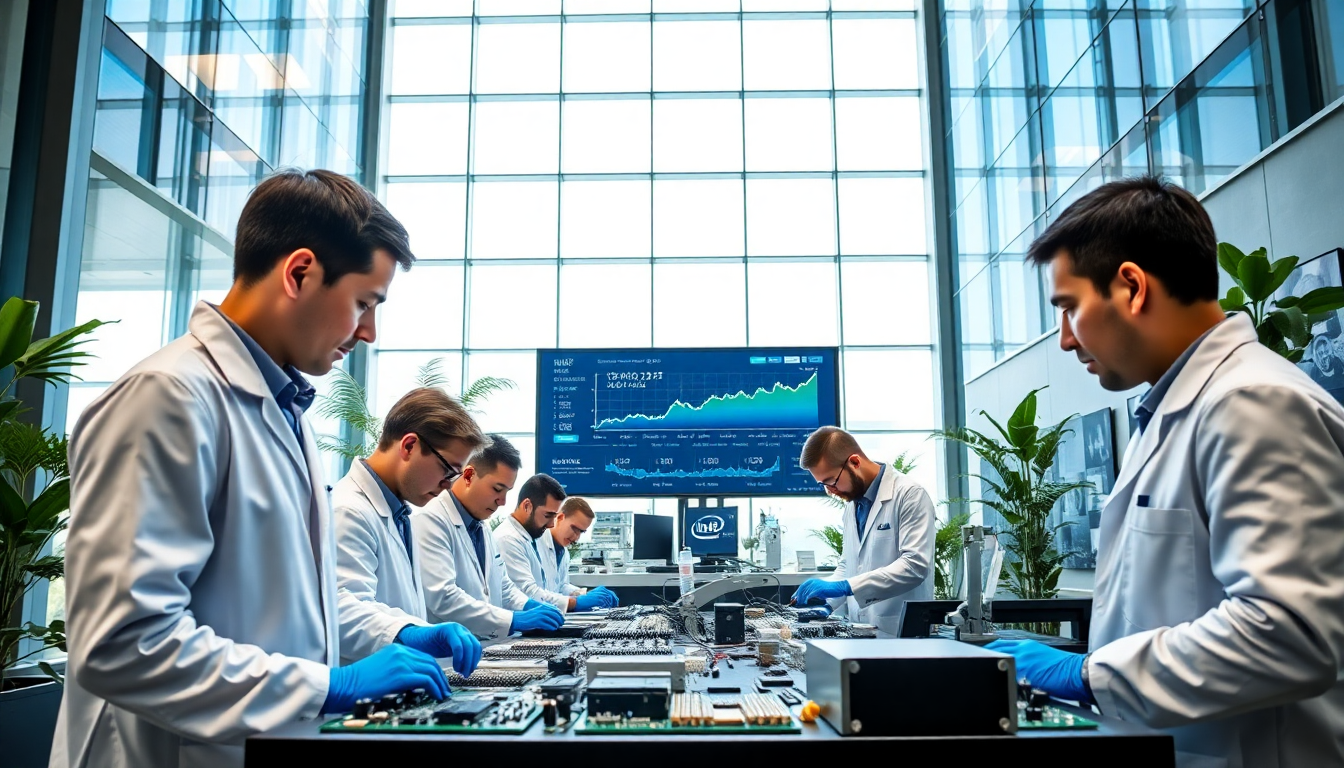Table of Contents
President Trump’s recent decision to acquire a 10% stake in Intel has set off quite a buzz, sparking an important conversation about the relationship between government and private business. With this move, the federal government now holds the title of Intel’s largest shareholder, which some argue strays from the traditional Republican belief in limited government intervention in the market.
What does this mean for corporate governance and economic policy in the U.S. moving forward?
The government’s new role in the corporate landscape
Historically, the Republican Party has stood firmly on the idea that the government should avoid picking “winners and losers” in the marketplace.
This belief suggests that free markets function best when left to their own devices, away from government meddling. But Trump’s latest actions appear to mark a shift towards what many are starting to label as a form of industrial policy.
By taking a significant share in Intel, it looks like the government is stepping out of just a regulatory role and becoming a player in the business game.
Such a change raises eyebrows among traditional conservatives who worry it could lead to a model resembling semi-state-owned enterprises, something we more often associate with authoritarian regimes.
Voices like Senator Thom Tillis and economist Steve Moore have expressed their concerns, arguing that this kind of government involvement in private companies confuses the lines between capitalism and socialism.
On the flip side, Trump defends his strategy as a savvy move for the U.S.
economy, claiming it will enhance American technological leadership and create jobs. He argues that by investing in Intel, the government can help keep the company competitive globally, especially against rivals in countries like China. But can government really play the role of a supportive investor without overstepping?
Reactions from the political spectrum
The political reactions to Trump’s stake in Intel reveal the fractures within the Republican Party and the larger political landscape. Some conservatives are up in arms about the move, seeing it as a slippery slope towards socialism, while others view it as a chance to rejuvenate the American manufacturing scene. Interestingly, Bernie Sanders has welcomed the government’s role in backing American companies, albeit from a distinctly different ideological perspective.
Economists are also split on this issue. Some warn about the dangers of corporate welfare, suggesting that government investments can skew market dynamics and create inefficiencies. They often cite historical examples of government bailouts, which frequently lead to unintended consequences that hurt both taxpayers and the companies involved. So, is the potential risk worth it?
Meanwhile, supporters of this deal argue that it takes a pragmatic approach to safeguard the future of a struggling tech giant. They believe that if the government remains a non-voting member of the board, it can offer essential support without interfering with the company’s daily operations. But how much influence is too much?
Future implications for corporate governance
As we watch the American business landscape evolve, the implications of Trump’s stake in Intel will likely ripple through various sectors. Investors have been keeping a close eye, noticing a slight uptick in Intel’s stock after the announcement. However, the company is facing tough times ahead, with plans to lay off 15% of its workforce amidst declining valuations. How will this affect investor confidence?
The big question now is how this government-business partnership will shape the future of corporate governance in the U.S. If it proves successful, could it lead to similar arrangements in other industries, fundamentally changing the relationship between the state and private enterprise? As we navigate this uncharted territory, it’s crucial for all stakeholders—investors, policymakers, and the public—to have informed discussions about the balance of power between government and the market.
Ultimately, the outcome of this experiment in government intervention could have lasting effects on the principles of capitalism and the future landscape of American industry. Are we ready for such a transformation?





